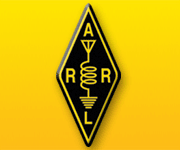Putting Contesting to Work for Your Public Service Team
ARRL November Sweepstakes is just ahead, and the ARRL 10 Meter Contest isn’t far behind. All are ideal opportunities to gain or hone Amateur Radio operating skills that can be put to use during an emergency response or a public service event. In short, contesting isn’t just for contesters anymore, and you don’t have to wait for Field Day to get — or stay — up to speed.
“Operating skill is not something that can be tested on a license exam or learned from a book,” said ARRL Contributing Editor Ward Silver, N0AX, an active contester as well as a member of his local ARES team. “Emergency managers know that practice — lots of it — is required for operators to be sharp when they are really needed.” Silver pointed to an article on the topic by ARRL Southwestern Division Vice Director Marty Woll, N6VI, that appeared recently on the Southern California Contest Club (SCCC) website.
“[C]ontesting helps prepare us for demanding communication tasks, such as might be encountered during a major disaster,” Woll said in his article. “You don’t have to be in it to win it; just take part, and have fun while you’re learning to enhance your and your station’s performance.”
Silver says that repetitive emergency drills are fine but can get old. Contesting offers an enjoyable way to give your equipment a good shakedown and build on-the-air knowhow. “Just as sports keep you physically fit, ‘radiosport’ — or contesting — can serve as a training ground while having fun at the same time,” he said. Silver points out that a huge, multi-tower station isn’t necessary to participate. Even a low dipole will let you work lots of stations — and in SS, all of the stations are in the US.
Sweepstakes (SS) was conceived as a traffic-handling event that uses traffic-handling terms. Participants share their “precedence” (operating category) and “check” (the last two digits of the year the operator was licensed) as part of the exchange.
Local events are another option. “You can start simple with any of a number of regional FM simplex contests that encourage the use of mobile and handheld FM radios for an afternoon or evening,” Silver suggests. “This is a great way to learn about squelch management, copying weak signals, using phonetics, and the effectiveness of good locations and antennas.”
ARES and RACES groups can participate as teams, and a contest can be a terrific opportunity to dust off that communications van or even to get some practical experience in an emergency communications center (EOC).
“If you have enough interest, divide your group into two or three-person teams that operate in shifts with an experienced operator to mentor,” Silver said. “Better yet, put the teams at different stations and let them go head-to-head in a short challenge. No one says you have to operate the entire contest, either. Pick times that work — maybe about as long as your regular drills — and get together afterward for a little socializing over pizza.”
Silver said a contesting Elmer can help those new to contesting with scripts that guide the newbies through a QSO as well as some instruction on how to take best advantage of your equipment. Start each team of operators with a period of listening. “Once your team gets up to speed,” Silver said, “emphasize the reasons why we have contests in the first place: To reinforce accurate, effective operating practices. Place a special emphasis on copying call signs and exchanges 100 percent correctly.”
“The hours will fly by, and when it’s over, you’ll have some operators eager to do it again,” Silver said. “Regardless of how many contacts you make, when interspersed with regular drills and exercises, contesting offers a great change of pace while advancing everyone’s abilities at little or no cost.” — Thanks to ARRL Contributing Editor Ward Silver, N0AX
Back






